Posted on 12/20/2024
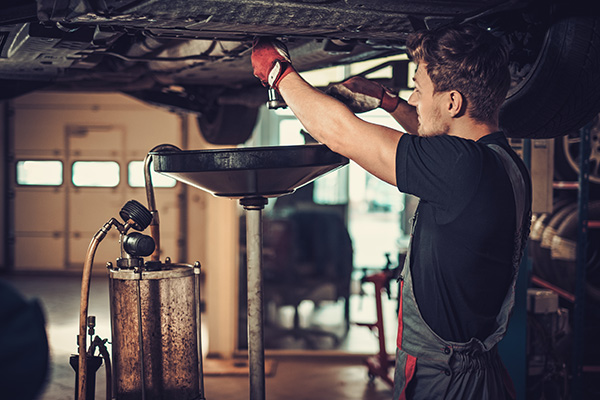
Oil changes are one of the most fundamental aspects of car care, yet many drivers underestimate their importance. Regular oil changes keep your engine running and skipping them can lead to long-term damage that’s both costly and avoidable. If you’ve ever wondered why oil changes matter so much—or what happens if you neglect them—this guide is here to answer your questions. Why Oil Changes Are Important Your engine is made up of countless moving parts that generate friction and heat as they work together. Engine oil plays a crucial role in reducing friction, cooling the engine, and keeping everything lubricated. It also helps trap dirt and debris, preventing buildup that could harm your engine. Over time, oil becomes contaminated with particles and loses its ability to protect your engine. Without regular changes, the oil can’t do its job effectively, leading to excessive wear, overheating, and even engine failure in extreme ... read more
Posted on 11/29/2024
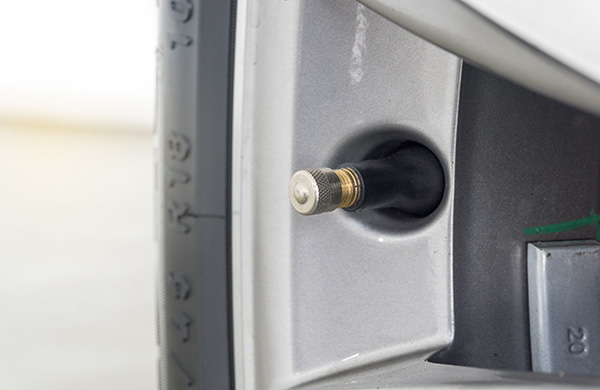
Have you ever approached your car, noticed a tire looking low, and wondered, “How did that happen without any obvious damage?” Tires can lose air in more ways than just picking up a nail. While most of us think of punctures as the primary cause, there are actually several reasons why a tire might deflate without a visible hole. Understanding these causes can help you keep your tires properly inflated, extend their lifespan, and maintain your car’s performance. Temperature Fluctuations One of the most common reasons for tire air loss, especially in colder months, is temperature fluctuation. As the temperature drops, so does the pressure inside your tires. For every 10-degree Fahrenheit drop in temperature, tire pressure decreases by about one psi (pounds per square inch). When winter sets in, this can mean a significant dip in tire pressure, even if your tires have no p ... read more
Posted on 10/31/2024
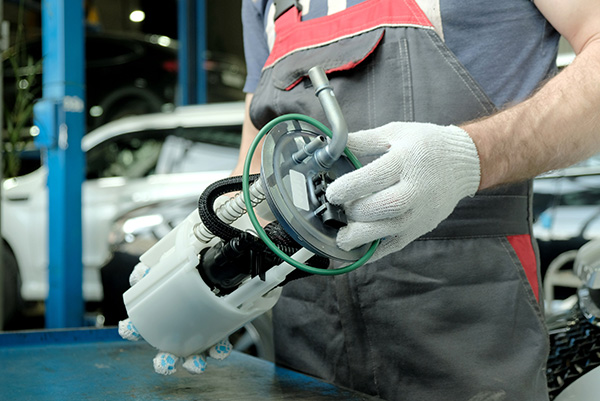
Running out of fuel isn’t just an inconvenience—it can also have long-term consequences for your vehicle, particularly your fuel pump. While it may seem like a harmless mishap, driving until your tank is empty can damage your fuel pump. But how do you know if running out of gas has affected your fuel pump? Why Running Out of Fuel Affects Your Fuel Pump Your vehicle’s fuel pump plays a critical role in supplying your engine with the gasoline it needs. It’s usually located in the fuel tank and uses gasoline not only as a power source but also as a lubricant and coolant. When your tank runs dry, the pump is forced to work harder without the necessary fuel to keep it lubricated and cooled, which can cause it to overheat and wear down faster. In essence, your fuel pump can overheat or even seize up when the fuel level gets too low. Repeatedly running on empty can lead to pump failure, and that’s when you’ll start noticing symptoms of d ... read more
Posted on 9/27/2024
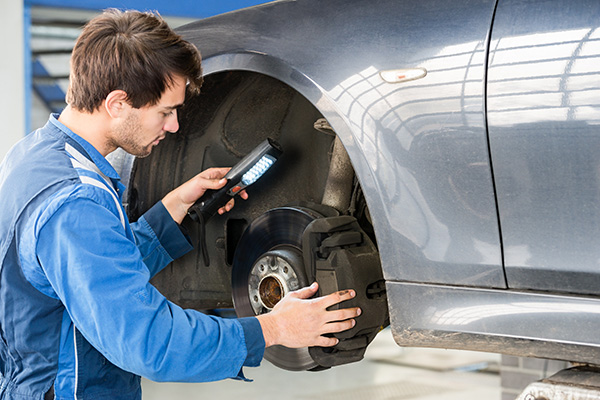
Your car's brake system is one of its most critical safety components. Whether you're navigating busy city streets, cruising down the highway, or dealing with sudden obstacles on the road, your brakes must always be ready to perform. Despite this, many drivers overlook the importance of regularly inspecting their brake system. Brake maintenance is not just about replacing worn-out pads—it's about ensuring every part is functioning optimally for safety, longevity, and peace of mind. So, why should you make brake inspections a priority? Why Regular Brake Inspections Are Essential When was the last time you had your brakes checked? If you're scratching your head trying to remember, it's probably been too long. Regular brake inspections help to catch small problems before they turn into major, costly repairs—or worse, lead to accidents. The reality is, your c ... read more
Posted on 8/30/2024
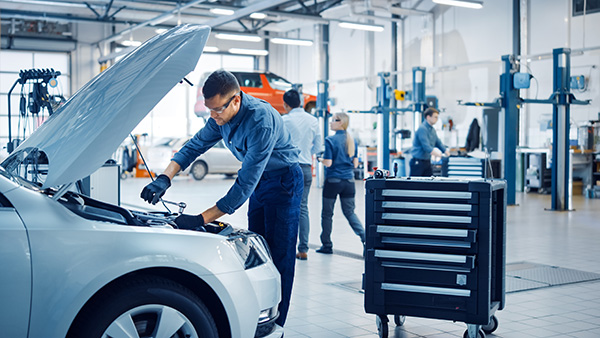
Regular maintenance is key to keeping your car running efficiently and at top performance. One of the most essential aspects of this maintenance is the car tune-up. But what exactly does a car tune-up include? We will share the details to understand why this service is so crucial and what you can expect when you take your car in for a tune-up. The Importance of Regular Tune-Ups Your car is a complex machine with numerous parts working together to get you from point A to point B. Over time, these parts can wear out or become dirty, affecting your car's performance and efficiency. Regular tune-ups help ensure that your vehicle runs at its best by addressing potential issues before they become major problems. This not only helps you avoid unexpected breakdowns but also improves fuel efficiency and extends the life of your car. What Happens During a Tune-Up? A car tune-up ... read more
Posted on 7/26/2024
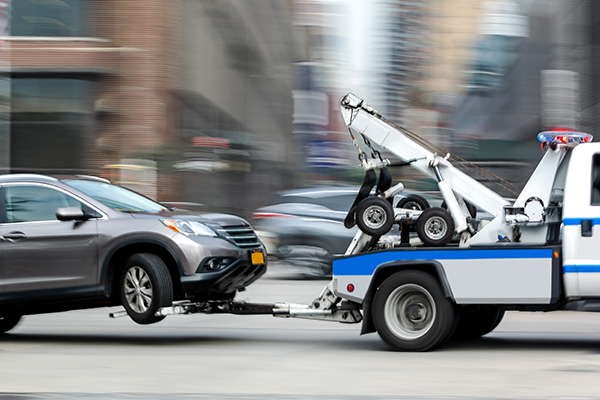
Car trouble can strike at any moment, leaving you stranded and stressed. Whether it's a flat tire, a mechanical breakdown, or an accident, knowing how car towing and recovery works can save the day. This process involves skilled professionals, specialized equipment, and a clear understanding of vehicle safety. Let's look into the ins and outs of car towing and recovery to demystify this essential service. The Basics of Car Towing Car towing is the process of moving a disabled or improperly parked vehicle using a tow truck. There are several types of tow trucks, including flatbeds, hook and chain trucks, and wheel-lift trucks. Each type serves a different purpose, ensuring that vehicles are towed safely and efficiently. Flatbed Tow Trucks Flatbed tow trucks are one of the most common types used for towing. They feature a large flatbed that can be inclined and slid back to allow a vehicle to be driven or winched onto it. This method is particu ... read more
Posted on 6/28/2024

Driving and music are a classic combination. There's nothing like cruising down the highway with your favorite tunes blasting through the speakers. But have you ever wondered if loud music could be impacting your driving performance? While it might seem harmless, the effects of loud music on your ability to drive safely are more significant than you might think. Let's explore how cranking up the volume can influence your driving and what you can do to ensure a safer ride. The Dangers of Loud Music While Driving We all have that one song that makes us turn the volume up to eleven. But when it comes to driving, loud music can be a hidden danger. It's not just about the distraction; loud music can interfere with your cognitive functions and reaction times, making it harder to respond to unexpected situations on the road. When you're focused on a blaring sound, your brain has to work harder to process the auditory input, which means less mental bandwidth ... read more
Posted on 5/28/2024

In today's fast-paced business world, maintaining a fleet of vehicles is essential for many companies. These vehicles are the backbone of operations, from delivery trucks to service vans, ensuring goods and services reach customers efficiently. But why is fleet maintenance so crucial for business operations? Ensuring Vehicle Reliability and Safety Reliability and safety are paramount when it comes to fleet vehicles. A well-maintained fleet reduces the risk of unexpected breakdowns or accidents, which can disrupt schedules, delay deliveries, and harm your company's reputation. By prioritizing regular maintenance tasks such as oil changes, tire rotations, and brake inspections, businesses can minimize the likelihood of mechanical failures and keep drivers safe on the road. Maximizing Operational Efficiency Efficient operations are the cornerstone ... read more
Posted on 4/26/2024
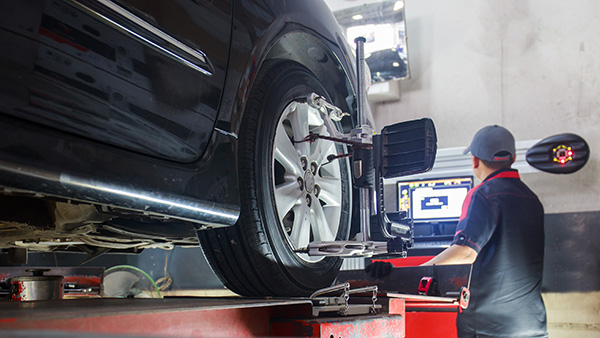
Have you ever wondered why your car tends to pull to one side or why your tires wear out unevenly? The answer to these problems could be related to your car's wheel alignment. This article explains how wheel alignment can impact your car's handling and tire condition and why it is critical to maintaining the best performance and safety when driving on the road. What is Wheel Alignment Wheel alignment refers to the adjustment of the angles of the wheels relative to each other and the car's body. These angles include camber, caster, and toe. Proper alignment ensures that your tires make optimal contact with the road surface, facilitating even tire wear and stable handling. Effects of Poor Alignment When your wheels are out of alignment, it can lead to various issues. Misaligned wheels can cause your car to pull to one side, affecting your car ... read more
Posted on 3/31/2024
.jpeg)
Choosing the right tires for your vehicle can be daunting. With so many options available, from all-season to performance, how do you know which ones are best suited to your needs? Fear not - this comprehensive guide will demystify the tire selection process and equip you with the knowledge needed to make an informed decision. Tire Basics Tires are composed of multiple layers, each serving a specific purpose in enhancing traction, handling, and ride comfort. The outermost layer, known as the tread, is the part of the tire that comes into direct contact with the road surface. Tread patterns vary widely, with designs tailored to specific driving conditions and performance requirements. Beyond the tread lies the carcass, which provides the structural integrity of the tire. The carcass is typically constructed from layers of fabric and steel cords, carefully arranged to withstand the forces encountered during driving, such as cornering, braking, and acceleration. The si ... read more